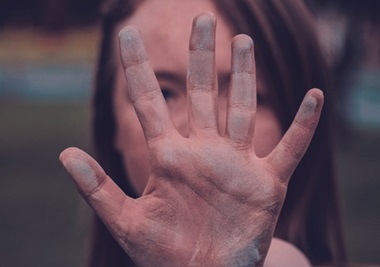 The Evangelical Fellowship of Canada (EFC) supports a groundbreaking international report that recognizes prostitution as a system of exploitation and violence.
The Evangelical Fellowship of Canada (EFC) supports a groundbreaking international report that recognizes prostitution as a system of exploitation and violence.
The report by the Special Rapporteur on violence against women and girls recognizes that prostitution is both intrinsically linked to different forms of violence against women and girls and a form of violence in and of itself.
Following is the EFC’s letter to the UN Office of the High Commissioner for Human Rights in support of the report.
To: The Office of the High Commissioner for Human Rights
Re. Report of Reem Alsalem, the Special Rapporteur on violence against women and girls, Prostitution and violence against women and girls (HRC/56/48)
June 13, 2024
The Evangelical Fellowship of Canada’s Centre for Faith and Public Life (CFPL), based in Ottawa, Ontario, Canada, welcomes the report of the Special Rapporteur on violence against women and girls titled: Prostitution and violence against women and girls.
The EFC has engaged on this issue both legislatively and in the courts over many years. We were granted intervener status in the Supreme Court of Canada in its review of Canada’s former legislation on prostitution.
We advocated for Parliament to adopt Canada’s current legislation, the Protection of Communities and Exploited Persons Act (PCEPA), which criminalizes the purchase of sexual services and profiting from the sale of another person’s sexual services, while immunizing prostituted persons from prosecution. The PCEPA treats prostitution as a form of sexual exploitation that disproportionately and negatively impacts women and girls.
We welcome the report’s recognition of prostitution as a system of exploitation and violence, which reduces women and girls to commodities. This framing reflects the Special Rapporteur’s findings that prostitution is both intrinsically linked to different forms of violence against women and girls and constitutes a form of violence in and of itself.
We have long argued that prostitution is not merely a series of interactions between purchaser and purchased that exist independently of one another. Rather, prostitution is part of a system of exploitation that is based on structural inequalities and preys on a range of vulnerabilities. It is fundamentally contrary to equality between the sexes, and is both based in and relies on that inequality to exist.
We affirm the report’s recognition of prostitution as a system of inequality and discrimination based on sex and other intersecting grounds. As such, there is a full spectrum of international human rights standards that apply in the context of prostitution.
As the report highlights, there are societal contexts that create vulnerability to exploitation in prostitution. These contexts are critical to any analysis of the voluntariness of prostitution, and we appreciate the report’s fulsome discussion of those factors and contexts.
Further, as the report makes clear, it is not possible to protect voluntariness or prevent abuse and coercion within the system of prostitution.
The system of prostitution must not be normalized or legitimized.
We support the clear, comprehensive and evidence-based recommendations of the Special Rapporteur.
In particular, we urge all States Parties to:
- Recognize prostitution with its connected variations, such as pornography, as a system of exploitation and violence, in part by considering the full spectrum of international human rights standards that apply in the context of prostitution (e.g., prostitution as a crime of rape, a crime against humanity, torture, slavery or femicide); and
- Adopt the abolitionist legal framework and its five pillars. These five pillars are: the decriminalization of women in prostitution; providing comprehensive support and exit pathways; criminalizing the purchase of sexual acts; criminalizing all forms of pimping; and implementing sensitization campaigns for sexual act buyers.
- Work to end demand for buying sexual acts by, inter alia:
(i) Increasing obstacles to the purchase of sexual acts;
(ii) Creating greater inconvenience for buyers through legislation, such as including their names in a registry of sex offenders;
(iii) Normalizing the illegality of purchasing sexual acts;
(iv) Raising awareness in society at large about the negative consequences of participating in the prostitution system;
We recommend that this framing of prostitution as a system of violence and exploitation be maintained and reflected throughout all UN protocols/treaties, including the CEDAW, and urge the UN OHCHR to fully support this groundbreaking report and to call for its adoption into resolution.
Sincerely,
Julia Beazley, Director of Public Policy
The EFC’s Centre for Faith and Public Life
Ottawa, Ontario, Canada
